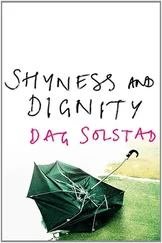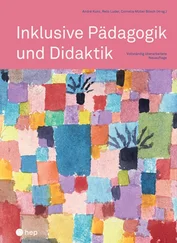What now? The plane would soon leave and it was time to get to the airport. But could they just take off and leave Bjørn Hansen behind in a Lithuanian hospital seriously injured? Maybe one or two of them should stay and give him support? The Lithuanian delegation leader assured them that this was not necessary. First, it wouldn’t do him much good for a long time and, second, he was in the best of hands. In case anything came up, the embassy in Warsaw had already been notified. An embassy secretary would visit him as soon as the time was ripe. This soothed the Norwegian delegation sufficiently to persuade them to leave for home together at the appointed time.
Bjørn Hansen remained in Vilnius Hospital for several weeks. He was Dr Lustinvas’s patient and nobody else was allowed near him without Dr Lustinvas’s permission. Sometimes Dr Lustinvas visited him with some other doctors, who would stand in the middle of the room: he could hear Dr Lustinvas speaking to them in an undertone. Or else Dr Lustinvas would pay a call accompanied by a flock of nurses, one after another, like a little procession, in which case the visit with the envoy from the West was only part of an all-inclusive.round of visits. Once a day a nurse came to change his bandages and to rub him thoroughly with ointments. Two nurses took turns at it, the same ones who had bandaged him and put him in plaster that first evening. They were young and sweet and nursed him with all possible care. Sometimes they would talk to him in Lithuanian, smiling when they realised he didn’t understand a word. Once in a while they both came, in the company of Dr Lustinvas, and then Bjørn heard them talking about him among themselves, the nurses’ voices sounding mournful. Dr Lustinvas would come over to his bed and stand there with a worried look in his eyes. Or he would sit down beside him, take his hand to feel his pulse or listen to his heart with the stethoscope. Every day he updated the curves on a chart that hung on the wall above his bed.
One day Dr Lustinvas gave him an injection that made him pleasantly drowsy. Shortly afterwards, Dr Lustinvas returned, accompanied by a gentleman who spoke Norwegian, Bjørn Hansen could tell, but unfortunately he was so drowsy that he did not quite catch what the man said or wanted. Afterwards, Dr Lustinvas explained that it had been the secretary at the Norwegian embassy in Warsaw, and he pointed at the primitive bedside table which had flowers and assorted chocolates on it. At his next visit Bjørn Hansen would supposedly feel better, and the embassy secretary would bring him a bundle of Norwegian newspapers and other reading matter.
Dr Lustinvas treated Bjørn Hansen with great respect and with routine medical expertise. Bjørn also came to suspect that he had not been given ordinary hospital food but a special diet, for he could find no fault with his meals. Dr Lustinvas alternated between giving him encouraging words and showing him sympathy. On the day when he came to report that what had occurred was irrevocable, in the sense that he must now confront the fact that he had to spend the rest of his life in a wheelchair, the doctor pressed his hands as he told him. He had sat down right beside Bjørn Hansen; indeed, he had moved his chair, which already stood near the bed, putting it exactly in such a way that, when he sat down on it, he was eye to eye with his patient. That day, too, he had a procession of nurses with him. They were lined up along the wall as he broke to Bjørn Hansen the news that there was no going back, and they stood there with grave faces, staring straight ahead and looking deeply grieved, including the two young women who had received him the first evening and who later had taken turns nursing him. They stood there in the background like a wailing Greek chorus, albeit dressed in white.
Bjørn had visitors. First, the leader of the Lithuanian delegation, who lived in Vilnius, and later the secretary of the Norwegian embassy in Warsaw. During both these visits Dr Lustinvas was present, and when the Lithuanian was there he often took the floor himself, probably telling his countryman in their common language something about the accident and its consequences for his Norwegian patient. When the embassy secretary was there, Dr Lustinvas did not say anything, but he was there all along, in the background. This last meeting, by the way, came off very smoothly, with talk about this and that, and it was clear that the embassy secretary also was reluctant to touch directly on the reason why Bjørn Hansen found himself in a Vilnius hospital.
He was Dr Lustinvas’s own patient and the doctor watched him zealously. He might suddenly pop up at Bjørn Hansen’s bed, often alone. Then he would sit down and look at him, ask him how he felt and whether he found any fault with the treatment. Suddenly he would begin talking about himself. About his being a Lithuanian and a Catholic. About the Lithuanian steppes, where he had spent his childhood. About how he hated Russians and communism, yet had much to thank them for. Without them, he would not have been a doctor, but a slave of the soil. Without them, Vilnius would not have been the capital of Lithuania, but a city in Poland. ‘Tomorrow, perhaps, Vilnius will again be a city in Poland. It depends on the Germans. We have wandered a lot and will continue to wander. Perhaps to the banks of the Dnieper, what do I know? But if Germany wants to have Stettin and Breslau, Königsberg, Danzig and Memel back, then Poland will want to have Vilnius back and we must start wandering eastwards. But I’ll manage,’ Dr Lustinvas added, ‘because God is behind it all.’ This is what he told his patient. This remarkable man from the rich West who was lying full length in his bed, bandaged and plastered by the book. A man to weep over, if you sat down at his bedside and reflected on what had happened, seen from the patient’s point of view. But Dr Lustinvas did not think about that. He was very vague when he touched on such things. But he was glad to sit at Bjørn Hansen’s bedside. Bjørn Hansen thought that the two sweet nurses must have been initiated; they were in on the secret. But no one else needed to know anything. Only Dr Lustinvas and two dark-haired beauties in nurse’s uniforms.
Dr Lustinvas sat by the bedside of this remarkable man, who must have transformed the doctor’s life. That, perhaps, was why he came so often, in order to be in the vicinity of this man who had made an entirely new life possible for him, a future he had not even dared dream of before Bjørn Hansen showed up. The sum of $10,000 had fallen from the sky straight down into Dr Lustinvas’s lap. A wealthy man with a crazy idea in his head had turned up in his life. This bandaged and plastered man from the West was God’s gift to Dr Lustinvas, and that was also how the doctor treated Bjørn Hansen. One day Dr Lustinvas will have to go to confession, of course, Bjørn Hansen thought, though he is not likely to do so until I’ve left; but will he then speak about this as a sin he has committed or as an undeserved miracle on life’s journey and a blessing?
And those two little sweet nurses treated Bjørn Hansen in the same way. With great respect and much consideration. One day Dr Lustinvas rolled a wheelchair into Bjørn Hansen’s room, closely followed by both nurses. The nurses helped Bjørn Hansen into it, and after Dr Lustinvas had instructed him in the use of it — as well as given him, in vague terms, some good advice about how a paralysed man actually behaves, both when he is being helped into a wheelchair and when he sits in it — the two nurses rolled Bjørn Hansen out into the corridor and placed him on a covered veranda. Bjørn Hansen could then verify that spring had arrived in Lithuania. The birds were singing and the trees were sprouting fresh leaves. Soon he would leave the hospital and Vilnius. He spent yet another week there, mostly taken up with getting used to sitting in a wheelchair; he pushed himself up and down the corridors, or sat on the covered veranda with a blanket over his knees. Dr Lustinvas would sometimes turn up as Bjørn sat there, sit beside him and explain what it meant to have been born in Lithuania. He had brought a worn photo album and showed him pictures. Of his father, the kolkhoz peasant. Of his mother, a heavy-set Lithuanian country wife. Of his three brothers and his sister. He showed him a pendant of the sister, for she was dead; she died at sixteen, and so her picture was inside a pendant that Dr Lustinvas carried on a chain around his neck. Bjørn was shown pictures of Dr Lustinvas as a child, a young man, as a student, and as a junior doctor. Of Mrs Lustinvas and the two children, photographed inside a cramped, over-furnished flat. Mrs Lustinvas was also a doctor. Here in the hospital. ‘Too bad you haven’t met her,’ Dr Lustinvas said. The two children were six and eight. All the pictures looked typically stuffed, contrived. You were at the photographer’s, even if the photographer was a father (of the children), husband (of Mrs Lustinvas), or son (of his father and mother). The very interiors appeared stuffed, with all those things piled up on the rickety dining-room table around which the Lustinvas family were seated, except for Dr Lustinvas, who took the pictures. Dr Lustinvas dreamed of a Pax Romana: peace for the Lithuanians within the walls of the new German-Roman nation, which would check German expansion along the Baltic coast and towards the Oder — Neisse border, and in which Poles, Lithuanians and White Russians could live in eternal peace — with the Russians as the barbarians on the other side of this new Roman wall. Dr Lustinvas’s children sat at the table and stared at Bjørn. Mrs Lustinvas stared at him. Dr Lustinvas as a young student stared at him. He had placed his hand on the shoulder of a fellow student, and both stared at Bjørn, inscrutably. Grandmother Lustinvas stared at her son, who had returned to the countryside as a junior doctor with a camera in order to take a photograph of his mother, and from inside that picture she now stared at Bjørn Hansen, the man from the West. Dr Lustinvas asked no questions about Bjørn Hansen’s family situation. He came from the Other Side and had no history. He came to Dr Lustinvas from outside, rich and unknown, asking a favour, and so he had changed Dr Lustinvas’s life, while he himself, for some unfathomable reason, sat in a wheelchair as a cripple. Dr Lustinvas had no questions to ask him. Not even about the world of wealth he came from did Dr Lustinvas ask any questions.
Читать дальше












